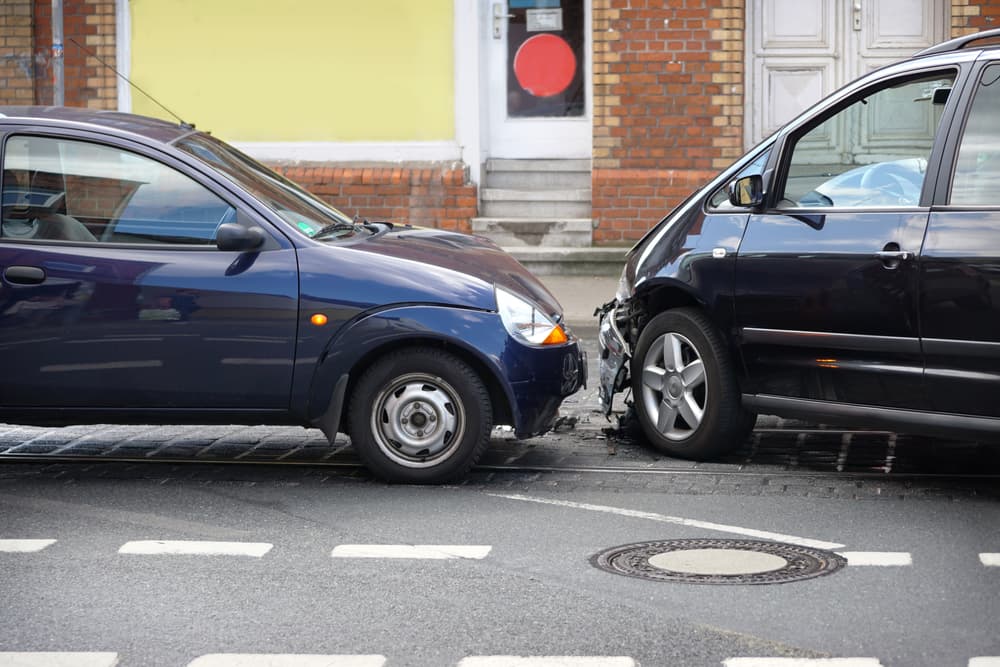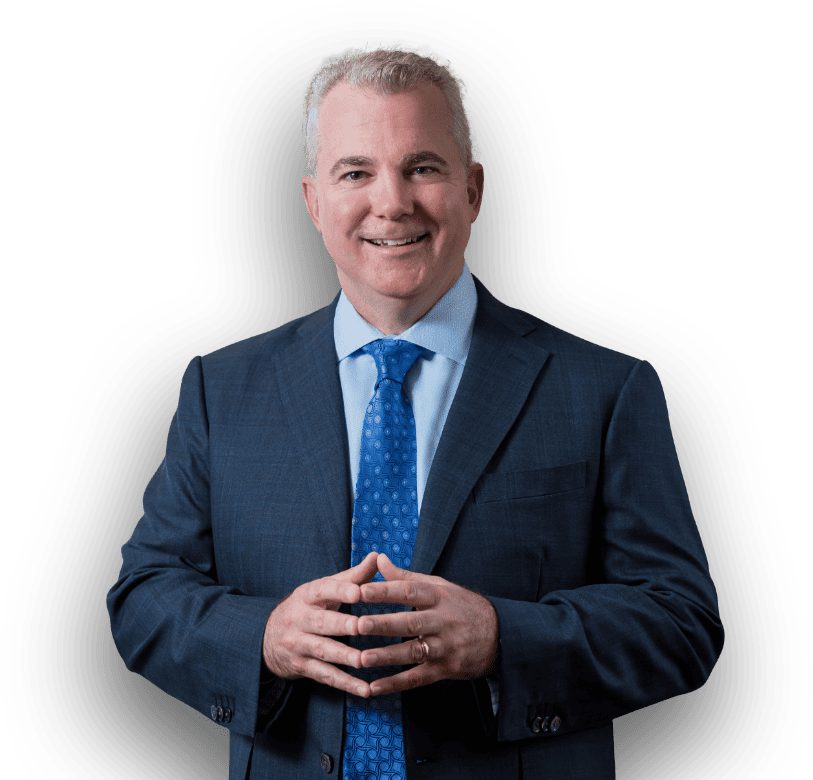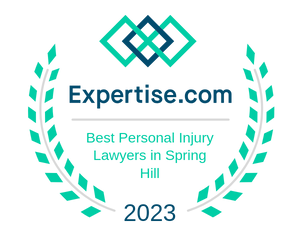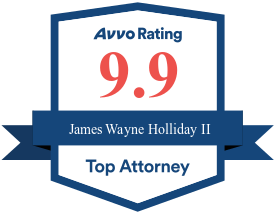When two vehicles hit each other coming from the opposite direction, it’s called a head-on collision. These severe accidents usually cause devastating or fatal injuries, especially when cars travel at high speeds.
You can recover compensation for your losses after a head-on crash. Or, you can recover compensation in a wrongful death lawsuit if your loved one died in the collision. Speak to a Florida car accident lawyer today in your community in a free consultation to learn if you have a case.
What Is a Head-On Collision?
A head-on collision is a full-frontal crash involving two vehicles. Two motor vehicles hit each other from the front, usually traveling in opposite directions. A head-on crash may also happen when a vehicle slams into a stationary object, such as a tree or concrete barrier.
Two vehicles are in most head-on crashes, so the crash usually leads to a violent, often lethal amount of force. These crashes frequently are the most dangerous of all motor vehicle accidents. For example, Princess Diana was killed in a high-speed, head-on collision with a road barrier in 1997.
Head-On Collision Statistics
Head-on crashes cause almost 11 percent of all deadly auto accidents. Research shows that in a recent year, head-on crashes caused 4,295 deaths and thousands of injuries. Further, about 13 percent of rural auto accidents and 7 percent of city collisions are head-on crashes.
Anyone in a head-on crash almost always has devastating injuries. Retaining an auto accident lawyer to prove fault and demand maximum compensation for the liable party’s insurance company is critical. Your injuries and damages can reach six or seven figures, and few people have the financial resources to afford medical care this expensive.
Is A Head-On Collision The Worst Of All Auto Accidents?
It can be. The problem with many head-on collisions is that two vehicles coming in the opposite direction will double the impact force. If one car is going 50 miles per hour and the other is traveling at 60 miles per hour, the cars hit with the force of a 110 miles per hour collision.
Such a horrific collision will destroy almost any vehicle, virtually guaranteeing severe or fatal injuries.
Other reasons that make head-on collision more severe than other accidents are:
- Limits of crumple zones: Modern vehicles usually have crumple zones to absorb the high forces of car crashes. But these zones can only do so much, and a high-speed, head-on crash may crush the crumple zones to the point where they severely injure or kill occupants.
- High risk of ejection: Occupants have a higher risk of a head-on crash ejecting them, even if they wear seatbelts. For example, a crash can throw a passenger through the windshield and onto the road, usually resulting in severe head trauma or death.
- No reaction time: In many crashes, drivers have a second to hit the brakes or change direction to reduce the impact force. But a head-on crash may happen so fast that neither driver has time to react. The crash can occur at full speed and cause deadly injuries.
The severity of head-on collisions is why so many of these cases involve fatalities. You recover compensation in a wrongful death lawsuit if another party’s negligence caused the head-on collision. Your car accident attorney can file a wrongful death claim.
Potential compensation may include:
- Pain and suffering of the deceased before and during death
- Your emotional and mental anguish from the loss of your loved one
- Lost income and financial support for your family
- Loss of services, care, and support
- Funeral and burial expenses
- Medical bills before death
Common Causes of Head-On Collisions
Head-on crashes usually happen when a motor vehicle crosses the median or yellow line and hits a car going in the opposite direction. Drivers who go the wrong way on a one-way road also may cause head-on crashes.
Head-on crashes happen for many reasons, and your head-on collision attorney will review your case thoroughly to reveal the cause:
- Distracted driving: Drivers may text, talk on the phone, or check the GPS or radio, leading them not to pay attention to the road. They may cross into the opposite lane and slam into another vehicle. A personal injury attorney can review the driver’s cell phone records to show if they were texting or talking when the crash occurred.
- Drunk driving: Driving under the influence of alcohol can affect a driver’s judgment or coordination behind the wheel. They also may fall asleep or pass out and cause a head-on collision. Your head-on collision lawyer will review the police report and statements to determine if the driver was under the influence.
- Fatigued driving: A sleepy driver can easily fall asleep on the road and drift into opposing traffic. Many head-on collisions happen at night on rural roads when tired drivers are most likely to nod off.
- Illegal passing: If a car driver passes on a road with a double yellow line, they violate the law. If a car is coming in the other direction, this can easily cause a head-on crash.
- Lost driver: It’s common for lost or confused drivers to enter the wrong way on a highway or one-way street, especially when they don’t know the area.
- Reckless driving: A reckless driver can easily drive too quickly or dangerously, lose control of the car, cross the yellow line, and hit oncoming traffic.
A car accident attorney will review the head-on collision to decide if another party’s negligence caused the crash. If so, you may recover compensation for your losses. If other family members suffered an injury in the accident, you also can receive compensation for their injuries.
What Are Common Injuries In A Head-On Collision?
Injuries in head-on crashes can cause devastating, fatal injuries.
As the injured party or surviving family member, you should receive fair compensation for your injuries and other losses. Recovering from a head-on collision takes time and a lot of money.
Common injuries include:
- Spinal cord injuries and paralysis
- Traumatic brain injuries
- Broken bones
- Amputation and crushed limb injuries
- Chest injuries
- Internal bleeding and organ damage
- Burns and scarring
- Severe facial injuries
Many people die in head-on collisions. If that happens to your loved one, you should speak to a head-on collision lawyer about filing a wrongful death lawsuit against the liable party.
Determining Fault in a Head-On Collision
In most crashes, at least one driver is at fault for the head-on collision. For instance, if drivers fall asleep on a rural highway and cross into opposing traffic, they are likely at fault. Another common scenario is a drunk driver passing out behind the wheel at night and hitting an oncoming vehicle. Sometimes, a tractor-trailer driver falls asleep after long hours behind the wheel and hits a car coming in the other direction.
Regardless of the circumstances, your personal injury lawyer must prove fault for you to receive compensation for medical bills, lost income, and pain and suffering. You must also prove fault to receive compensation for your loved one’s death in a wrongful death claim.
Your attorney will prove:
- Another driver owed you a duty of care: For example, a driver on a country road owes you a duty of care to drive safely, not fall asleep or be intoxicated, and not injure another motorist.
- Another driver violated their duty of care: For example, a driver fell asleep on a rural highway and hit your vehicle head-on.
- You suffered injuries from the breach: You have spinal cord injuries and broken ribs from the accident.
- You have damages from the accident: For example, you have $500,000 in medical bills and are permanently disabled, so you can’t work.
In some head-on crashes, several parties can cause the accident. A common situation is if a truck driver causes a head-on crash. You can hold their employer responsible for your damages.
Vital Evidence in a Head-On Collision Claim
Whether you receive compensation for your injuries hinges on the available evidence. Your lawyer will review your case and how the accident happened to decide if another party was at fault.
Some critical evidence that will determine liability includes:
- Photos and videos of the accident scene: You can be severely injured, so it may be impossible to take photos and videos. Ask a witness to take photos and videos and send them to you. It may help the case to have visual evidence of the crash scene and damaged cars before they are moved.
- Surveillance camera footage: Local businesses or traffic cameras may have footage revealing how the crash happened.
- Physical evidence: Your personal injury attorney may hire an accident reconstruction expert to review the vehicles, tire marks, and other physical evidence from the crash.
- Eyewitness statements: Any eyewitnesses to the accident may help prove fault.
- Police statements and reports: Your attorney will review the police statements and reports to determine whether they blamed someone for the accident.
- Your medical records: Your injuries can suggest how the crash occurred and are also important for determining the severity of your injuries and prognosis.
The strength of the evidence can prove another party’s negligence caused the accident. Your car accident attorney will tirelessly try to prove the other party’s negligence.
Obtaining Compensation in a Head-On Collision Claim
Retain a personal injury lawyer immediately if a head-on crash hurts you. You probably have devastating injuries and need a skilled attorney to maximize your compensation. You can easily have hundreds of thousands of medical bills and lost income for a severe head or spine injury.
Most car accidents are resolved with an insurance settlement. That is often the case if the other driver’s insurance company accepts liability. Your attorney will then initiate settlement negotiations to maximize your compensation. Or, the case may go to court if the insurance company doesn’t offer you enough money. In this case, your attorney will file a personal injury lawsuit and prepare the case for trial.
However you receive compensation, you may recover damages if your head-on collision attorney proves liability, including:
- Medical expenses - past, current, and future
- Lost income for any work time you have lost from being injured and receiving treatments
- Pain and suffering
- Emotional anguish
How much you receive in your head-on collision claim depends on:
- Severity of injuries: Sadly, head-on collision injuries may be devastating. The more serious your injury, the more money you typically receive. A head injury, for example, is worth more than broken ribs.
- Medical care needed: If you have high medical bills, such as for hospitalization and surgery, you may be entitled to more money.
- Disability: If you are permanently disabled and cannot work, the case will be more valuable.
- Amount of insurance: Many drivers don’t have high coverage, so policy maximums can limit your compensation.
Speak to a Car Accident Attorney Today
A head-on collision with another driver is terrifying, and the injuries are almost always severe or fatal. A head-on collision attorney should be consulted immediately to ensure you get the most money for your losses. After all, you can have shattered bones, head injuries, spinal cord damage, and more.
You also should speak to an attorney if you lost your loved one in a head-on collision.
Speak to a Florida personal injury attorney today for additional information and to learn if you have a case. You won’t pay legal fees unless your auto accident attorney obtains compensation in a settlement or lawsuit.











